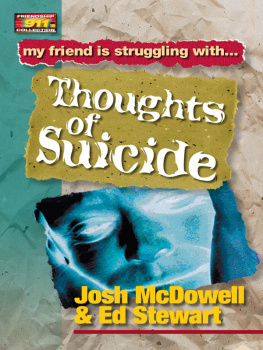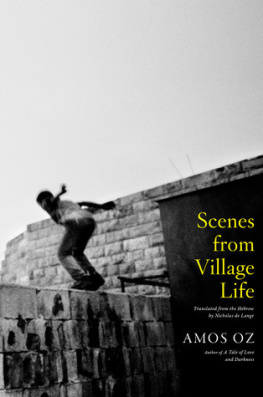
The
Changeling
BOOKS BY KENZABURO OE FROM GROVE PRESS
The Crazy Iris and Other Stories from the Atomic Aftermath
(editor)
Hiroshima Notes
Nip the Buds, Shoot the Kids
A Personal Matter
A Quiet Life
Rouse Up O Young Men of the New Age!
Somersault
Teach Us to Outgrow Our Madness
The
Changeling
Kenzaburo Oe
Translated from the Japanese
by Deborah Boliver Boehm

Copyright 2010 by Kenzaburo Oe
Translation copyright 2010 by Deborah Boliver Boehm
All rights reserved. No part of this book may be reproduced in any form or by any electronic or mechanical means, including information storage and retrieval systems, without permission in writing from the publisher, except by a reviewer, who may quote brief passages in a review. Scanning, uploading, and electronic distribution of this book or the facilitation of such without the permission of the publisher is prohibited. Please purchase only authorized electronic editions, and do not participate in or encourage electronic piracy of copyrighted materials. Your support of the authors rights is appreciated. Any member of educational institutions wishing to photocopy part or all of the work for classroom use, or anthology, should send inquiries to Grove/Atlantic, Inc., 841 Broadway, New York, NY 10003 or permissions@groveatlantic.com.
Published simultaneously in Canada
ISBN-13: 978-0-8021-9798-6 (e-book)
Grove Press
an imprint of Grove/Atlantic, Inc.
841 Broadway
New York, NY 10003
Distributed by Publishers Group West
www.groveatlantic.com
Contents
The
Changeling
PROLOGUE
The Rules of Tagame
Kogito was lying on the narrow army cot in his study, his ears enveloped in giant headphones, listening intently. The voice on the tape had just said, So anyway, thats it for todayIm going to head over to the Other Side now, when Kogito heard a loud thud. There was silence for a moment, then Goros voice continued: But dont worry, Im not going to stop communicating with you. Thats why I made a special point of setting up this system with Tagame and the tapes. Well, I know its probably getting late on your side. Good night!
The recording ended on this rather vague and unsatisfactory note, and Kogito felt a sudden, excruciating sadness that seemed to rip him apart from his ears to the very depths of his eyes. After lying in that shattered state for a while, he put Tagame back on the nearest bookshelf and tried to go to sleep. Thanks in part to the soporific cold medicine hed taken earlier, he fell into a shallow doze, but then a slight noise wakened him and he saw his wifes face glimmering palely under the fluorescent lights of the studys slanted ceiling.
Goro committed suicide, she said softly. I wanted to go out without waking you, but I was worried that Akari would be frightened by the rush of phone calls from the media. That was how Chikashi broke the news about what had happened to her only brother, Goro, who had been Kogitos close friend since high school. For a few moments Kogito just lay there in disbelieving shockwaiting, irrationally, for Tagame to start slowly vibrating, like a mobile phone receiving an incoming call.
The police have asked Umeko to identify the body, and Im going to keep her company, Chikashi added, her voice full of barely controlled emotion.
Ill go along with you till you meet up with Goros family, and then Ill come back here alone and deal with the telephone, Kogito said, feeling as if he were paralyzed from head to foot. The avalanche of media calls probably wouldnt begin for a few hours, at least.
Chikashi continued to stand silently beneath the fluorescent lights. She watched attentively as Kogito got out of bed and slowly put on the wool shirt and corduroy trousers that were draped over a chair. (It was the dead of winter.) After Kogito had finished pulling a heavy sweater over his head he said, Well, then, and without thinking he reached out and grabbed Tagame off the bookshelf.
Wait a minute, said Chikashi, the voice of reason. Whats the point of taking that thing? Its the cassette recorder you use to listen to the tapes Goro sent you, right? Thats exactly the sort of absurd behavior that always infuriates you when somebody else does it.
Even in his late fifties, Kogito still took the streetcar to the pool, and he had noticed that he was usually the only person on board with an old-fashioned cassette recorder. Once in a while he would see a middle-aged male listening to a tape and moving his lips, from which Kogito deduced that the man must be practicing English conversation. Until recently, the streetcars had been teeming with crowds of youths listening to music on their Walkmans, but now those same kids were all busy chatting on mobile phones or nimbly typing text messages on the tiny keyboards. Kogito actually felt nostalgic for the days when the tinny cacophony of popular music used to leak out of the young peoples ubiquitous headphones, even though it had seemed annoying at the time. Nowadays, Kogito concealed his bulky pre-Walkman recorder in the gym bag with his swimming equipment and wore the oversized headphones clamped around his graying head. At times like that, he couldnt help seeing himself as a lonely, isolated symbol of the generation gap, eating modernitys dust.
The old-fashioned cassette recorder had originally been given to Goro, back in the days when he was still working as an actor, as a perk for appearing in a TV commercial for an electronics company. The recording device itself was just a common rectangular parallelepiped, but while the design of the machine was absolutely ordinary, the shape of the large, black, ear-covering headphones bore a curious resemblance to the giant medieval-armored water beetles known as tagamepronounced taga-maythat Kogito used to catch in the mountain streams when he was a boy in the forests of Shikoku. As he told Goro, the first time he tried using the headphones he felt as if, after all this time, he suddenly had a couple of those perpetually useless beetles fastened onto both sides of his head, crushing his skull like a vise.
But Goro said coolly, That just tells me that you were a kid who couldnt catch anything worthwhile like eels or freshwater trout, so you had to be satisfied with those grotesque bugs. I know its a little late, but in any case, this is a gift from me to the pitiful little boy you used to be. You can call it Tagame or whatever, and maybe itll cheer that poor kid up, retroactively.
Goro seemed to think, somehow, that the tape recorder alone wasnt a sufficiently grand gift for Kogito, who was not only an old friend but also his younger sisters husband. That was probably why, along with the cassette recorder, he also gave Kogito a very attractive miniature trunk, made of duraluminan item that demonstrated Goros genius for assembling interesting little props, whether to enhance his personal lifestyle or to add atmospheric complexity to one of his films. And in that beguiling minitrunk were twenty-five cassette tapes.
Goro presented Kogito with this quadripartite gift (trunk, tape recorder, headphones, tapes) one evening after they had both attended a sneak preview of one of Goros films at a large movie theater in downtown Tokyo. Afterward, riding home alone on the train, Kogito stuck one of the cassettes, each of which was identified only by a number stamped on a white label, into Tagamefor he had, in fact, already started to call the machine by the nickname Goro had suggested.
Next page













